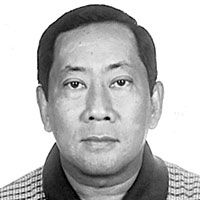Hacking: A threat to our electoral process

A close friend of mine just emailed me an article from Huffington Post entitled “Top Six Ways Hackers Could Disrupt an Election” written by Michael Gregg, COO Superior Solutions. Let me reprint the premise of this article, which should be of great interest to our readers.
Could hackers swing a US election?
“With the 2016 presidential race already well underway, it’s time for us to take cyber threats to our electoral process much more seriously. Over the years, a number of security researchers, ‘ethical hackers’ and government agencies have warned about the risks, but little has been done to prevent these attacks. Hacking just a few electoral districts could allow an attacker to swing an election in a close race. The US has had close elections multiple times in the past. In 1960, John F. Kennedy squeaked out a victory over Richard Nixon by just 0.1 percent. In the 2000 presidential election, the decision came down to just a few votes in Florida. In the end, the Supreme Court had to determine the winner.”
While this article talks about the hotly contested elections in the United States, but in truth, it might as well be talking about elections in the Philippines. Talk to any IT person or geek and he or she would tell you right away that no matter how complicated anyone’s security systems are, they can be hacked. This is why I scoffed at the Commission on Elections (Comelec) for boasting that their systems couldn’t be hacked…but in the end, Comelec officials are profuse in their apologies that they have been hacked.
I dare you Google “Hacker arrested” and you will see numerous links of hackers getting caught. One such hacker was just a 15-year-old boy. Take the case of the 23-year-old Paul Biteng who was recently arrested by the National Bureau of Investigation (NBI) for hacking into the Comelec’s website last month. This kid who allegedly belonged to Anonymous Philippines wasn’t even remorseful for what he did… and even asked for a “Selfie” with his arresting officer. In Cebuano we say, “Walay buot!”
This fellow said, “He meant no harm.” He doesn’t even realize that he would be charge with a serious offense, the Anti-Cybercrime Law. Now just imagine if someone was really dead serious in hacking into the Comelec’s website during the crucial period while the votes are being counted? It would be devastating to our electoral process, where the results can no longer be verified and what comes out is nothing but gibberish. Then what options do we have? There are no provisions for run-off elections.
This is why in my book, Congress made a terrible mistake in introducing Electronic Voting Systems into our laws. We should have stuck to the old paper and pencil manual voting where hackers simply just can’t disturb the voting process. Sure it wasn’t a perfect system…but it was far superior in the sense that the electorate knows that his vote can still be counted.
Here are examples that the Huffington Post article mentioned. According to Verizon’s 2015 Data Breach Investigations report, the public sector has the highest rate of “crime ware” infections of any industry sector. The Federal Election Commission’s (FEC) campaign finance disclosure system was knocked offline by hackers in 2013 – and last month, a new government report found that the FEC still failed to implement basic security measures to prevent it from happening again. The Argonne National Laboratory conducted a security review of electronic voting machines in 2012 and found that many widely used models were trivially easy to hack, potentially allowing for votes to be changed. We should be scared that this would happen here on May 9th.
I’m sure that sinister groups who want to sow intrigue and chaos during the elections could resort to hacking for the purpose of interfering with the counting of votes and installing malware virus to destroy the credibility of the election results. If a kid like Paul Biteng can do it… it is easy enough to hire a true IT geek to hack into the Comelec’s computer systems or worse, shut down all the Optical Mark Reader (OMR).
A week ago, some 100 priests from the Cebu Archdiocese trooped to the San Pedro Calungsod Shrine in SRP led by his Excellency Arch. Jose Palma to watch the PowerPoint presentation of Atty. Glenn Chiong entitled “Anatomy of Fraud: How can we prevent Automated Electoral Fraud.” I have already seen this PowerPoint presentation last March 12th and it is truly disturbing that the Filipino vote is unaware that his votes were manipulated.
What is happening to our country today reminds me of what Russian Premier Josef Stalin once said, “It’s not the people who vote that count. It’s the people who count the votes!” This Saturday April 30th, the Cebu Catholic Television Network (CCTN) will host Atty. Glenn Chiong to do the same PowerPoint presentation to the public. I have asked the permission of Oasis of Love Servant Leader Tatay Dodong Limchua that I would cover this event on MyTV channel 30 in Cebu so that the public will know that what we’ve been writing about since the 2010 and 2013 elections really happened.
* * *
For email responses to this article, write to [email protected] or [email protected]. His columns can be accessed through www.philstar.com.
- Latest
- Trending























